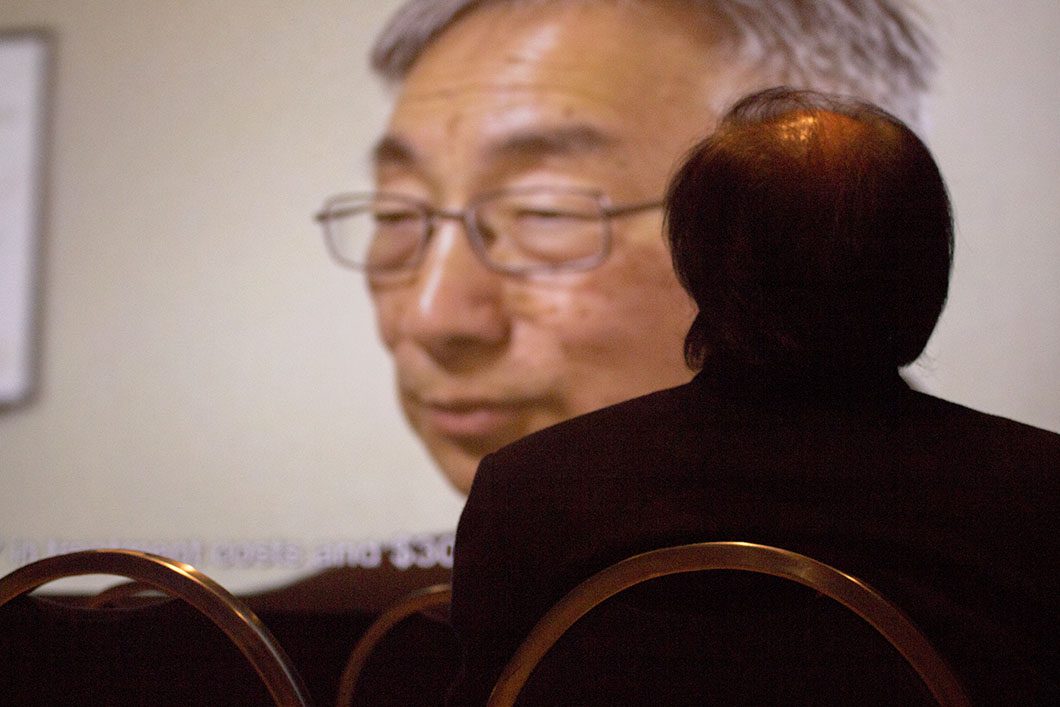Yoora Kim remembers taking her mother to the hospital after she fainted twice. Kim soon realized the cause was not sickness — it was the stress of caring for, and hiding, her father’s mental illness.
“We were burnt out,” Kim said. “Asian culture usually has stigma not only for the individual but for the family.”
Kim immigrated to Canada from Korea when she was nine. Most of her teenage years were spent struggling to care for her father. But when Kim and her mother started attending group therapy sessions at Hong Fook Mental Health Association, things began to improve.
“We knew it was there but we didn’t dare talk about it,” Kim said. “But when we talk now, I realize you have to let it out, you have to talk about it. If you don’t, you get worse.”
A unique mental health association for Asian communities
For the last 35 years, Hong Fook has provided culture-specific mental health services to Cambodian, Chinese, Korean and Vietnamese communities in the Greater Toronto Area. Hong Fook offers treatment through solo and group therapy, psychiatry, self-help and outreach programs, and training for those hoping to treat immigrant and refugee communities.
“The health system is not that easy to navigate and having an agency like us to support them is critical to facilitate access and treatment,” said Bonnie Wong, executive director of the association. “Having the language and culture-specific services is actually meeting their needs.”
Stories like Kim’s inspired the association’s latest event, which raised awareness of the mental health needs of caregivers (those who support people with mental illness) in Asian communities.
The organization hosted a charity movie night on Dec. 8 at the Japanese Canadian Cultural Centre. The movie, Mad World, follows a truck driver in Hong Kong as he cares for his adult son, whose struggle with bipolar disorder lead him to move home. More than 500 people attended the screening.
“The good thing about this movie is that it looks at both sides, it accurately presents the experience of patients who suffer from bipolar disorder, and also the family members that try to look after them, ” said Peter Chang, one of the founders of the Hong Fook Mental Health Foundation.
“I think it also brings in many cultural aspects, the habits and the day-to-day living of the situations are shown in this movie so that people can identify with it.”
The event raised funds for Hong Fook’s Family Support Program, which offers programs and activities to support the mental health of caregivers, and ultimately, the people they care for.
Kim and her mother attended a Korean family support group.
“Because our therapist was Korean, she understood the Korean culture,” Kim said. “It naturally happened so that we were encouraging each other and sharing the bad experiences we had with our family. It was a very safe place and very comfortable. We were able to also get support from that.”
Meeting the complex needs of immigrant caregivers
Caregivers from Asian communities may face many unique barriers in supporting their loved ones. Wong said Asian communities tend to treat health issues as a personal or family matter, with care often provided within the home. Cultural differences in Canada, including legislation (like confidentiality and privacy laws) and a medical model of care, can make navigating treatment harder.
“As a family member, they always have a role to protect,” Wong said. “There are issues of independence and the balance of the protection role, so we need education so the family caregivers know the differences.”
In a scene from Mad World, the story’s central caregiver asks for space from the community as he deals with his son’s worsening bipolar disorder. This scene resonated with Carmen Gao, who similarly asked for privacy while she dealt with her son’s anxiety disorder.
Gao said her son developed a constant headache and started rapidly losing weight. Gao took him to the hospital several times, worried he had a brain tumor. After months of testing, a nurse asked Gao’s son if he was constantly stressed. He said yes.
“For the past two and a half months, no one had asked about this,” she said. “If we have more support here, we’ll get immediate understanding.”
Gao was able to find treatment for her son and discovered Hong Fook in the process. She now volunteers with the association and is working to bring its services to Mandarin-speaking communities.
She is an example of the way understanding can become even more complicated between cultures and generations.
“The generation gap is often an issue, with children more Candianized and the parents in the old culture,” Chang said. “Hong Fook tries to facilitate communication between the two generations.”
Gao grew up in communist China during the rule of Mao Zedong, or Chairman Mao.
“We were educated to believe that we are strong and we can overcome our difficulties, so when people are talking about mental health issues, they don’t believe that,” Gao said.
Gao said she now encourages open communication between parents and children. She said this leads to awareness, understanding and healthier relationships.
“We are no longer like mom and son, we overcame the generation gap. We joined together like a team to help other people,” Gao said. “We need strong education to help each other with the appropriate resources we can leverage, and that’s the value of Hong Fook.”

